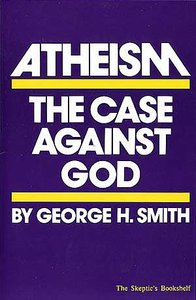
In July of this year I wrote that in 1978:
At Gabe [Monheim]’s suggestion, I bought Strong’s Exhaustive Concordance for ten dollars at (a now long-gone) Christian Publications bookstore on 8th Avenue between 42nd and 43rd, smack-dab in then-den of iniquity called Times Square. . . . I also picked up Norman Geisler’s Christian Apologetics , Josh McDowell’s Evidence That Demands a Verdict, and creationist critiques of evolution. This was my introduction to the intellectual side of Christian faith.
Despite the “connectivity” we enjoy these days, I didn’t know until the other day that Norman Geisler, the great classical Christian apologist—his CV is here—had passed away only a week before my July post.
A reflection of both his intellect and humor may be found in the title of one of his many books: Should Old Aquinas Be Forgotten? Why Many Evangelicals Say No: The Thought of St. Thomas Aquinas Considered. This conservative Protestant critic of Roman Catholic theology not only grew up among Catholics, but earned his doctorate in philosophy from Loyola University, a Jesuit institution. He coined “Triple-A Theism” to encapsulate his philosophical alignment with Augustine, Anselm and Aquinas.
On April 4, 1980, after reading Christian Apologetics cover to cover, I wrote to Geisler, then a Professor of Systematic Theology at Dallas Theological Seminary:
Dear Dr. Geisler,
Since your Christian Apologetics was decisive in establishing the intellectual side of my spiritual commitment, I write to you now believing you will once again be able to help me overcome certain difficulties in defending and developing a theistic philosophy. The difficulties, which I will state shortly, were occasioned by my reading of George Smith’s Atheism: The Case Against God (Kensington, N.Y.: Prometheus Books, 1979). I believe Smith’s case as a whole is well-stated . . . but can be answered only by challenging the positivistic rationalism which informs nearly all his arguments. While I am trying to do this now for my concerned Christian friends and my own philosophic development, I believe I will need the assistance of seasoned thinkers such as yourself in doing so.
The difficulties center on the notion of God. . . . First, if God is unlimited, but we know only of the limited and definite, then if we ascribe meaningful attributes to Him, we diminish Him, for He is unlimited and infinite. If we ascribe “unlimited” traits to Him—omniscience, omnipotence, omnibenevolence, etc.—make Him unknowable, and our talk of Him is literally nonsense.
In short, we can have no notion of an infinite being, supreme in every way; what we have a genuine notion of cannot be God. The second difficulty . . . concerns one famous way out of the foregoing dilemma . . . : what we cannot know literally, we cannot know analogically. If the supreme being evades characterization by knowable terms, we cannot have a knowable “analogical” notion of Him. Legitimate analogy presupposes a prior successful effort at definition and cannot constitute the heart of that effort. I do not believe you addressed this aspect of the problem of analogy in your Philosophy of Religion. Can you give me a non-theistic example of analogical predication (not analogical articulation of what we already have a notion of)?
Any response to this letter will be most appreciated. While awaiting it, I will peruse pertinent sections of your writings again to see if by carelessness I have missed the essentials of your forthcoming reply. [I did. See below] Also, if you are familiar with the Smith book, and know of any critical reviews of it (maybe even – dare I hope? – one by yourself), would you please let me know? Thank you so much.
Yours in the Lord,
Ten days later Norman Geisler penned this response: Continue reading “Norman Leo Geisler, 1932-2019: indefatigable and prolific Christian apologist”





 We deny the non-Christian the standing of “objective, disinterested observer,” which standing is generally assumed as in effect in academia.
We deny the non-Christian the standing of “objective, disinterested observer,” which standing is generally assumed as in effect in academia.


 And by nothing, I mean . . . nothing. For an entertaining retailing of the dues the dogmatists pay for their dogmatism, I cannot recommend too enthusiastically Rice University Professor of Chemistry
And by nothing, I mean . . . nothing. For an entertaining retailing of the dues the dogmatists pay for their dogmatism, I cannot recommend too enthusiastically Rice University Professor of Chemistry 
 Since the
Since the 
 A Catholic Challenge to Modern Atheism is the subtitle of
A Catholic Challenge to Modern Atheism is the subtitle of 
